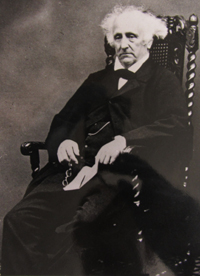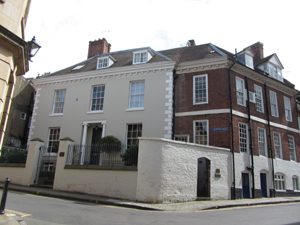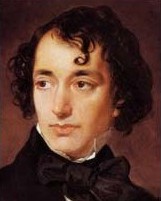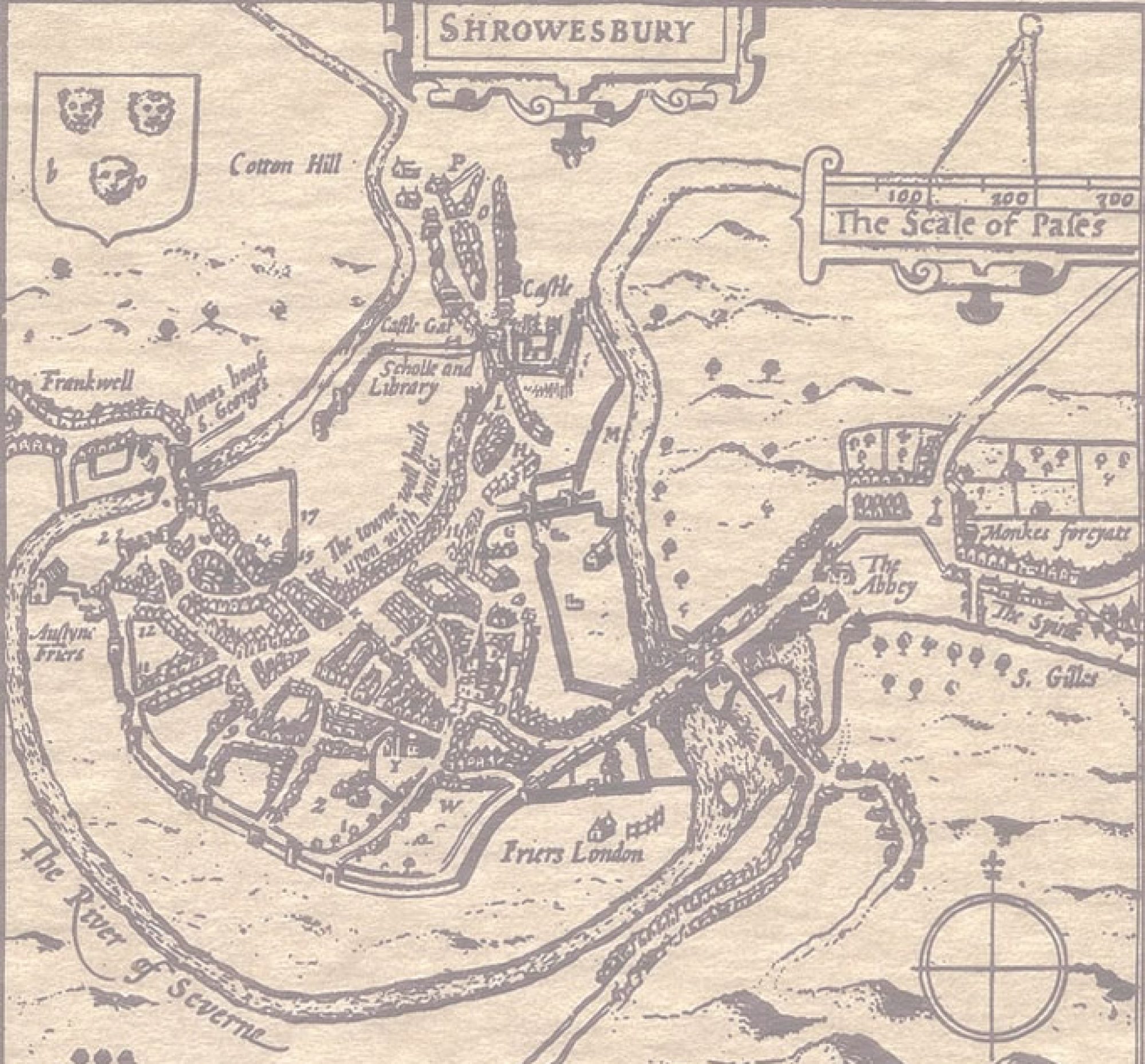Loxdale is a very small cul-de-sac on the Radbrook Green Estate, but behind the name is a family that had a big influence in Shrewsbury in the 18th and 19th centuries.

The Loxdales probably originated in Staffordshire. [footnote 1] Many of the family were solicitors, and the first to make a name in the town was Thomas (1720-93), who was Town Clerk from 1750-79, and Mayor in 1774. He was succeeded as Town Clerk in turn by his son Thomas, but an even more distinguished son was Joseph (1759-1846), who was Deputy Recorder of Shrewsbury, and Clerk of the Peace for Shropshire from 1786 – 1833. In this way he was the chief legal officer for both Borough and County, in which offices it was said that ‘no legal man could have excelled him’. In 1797 he too was elected Mayor of Shrewsbury. [footnote 2] When the old Town Hall was demolished he rescued the public records, the labourers having seized them to sell and buy drink with the proceeds, and he also bought back some that had already been sold. [footnote 3]

Joseph Loxdale had a large family, and most of his sons joined the family legal firm, which was based in the Square. [footnote 4] In addition to their private legal work the sons were also active in local affairs. Joseph junior (1793–1838) was Mayor in 1830, while James (1797-1890) succeeded his uncle as Town Clerk until the old Shrewsbury Corporation was abolished in 1836 by the passage of the Municipal Corporations Act. The job of Clerk to the new Council entailed a much reduced role with less remuneration, so James declined the offer of the post, and instead claimed compensation for his loss of income. The case dragged on for years and finished up being heard before the law lords and costing the council a lot of money. It seemed to have been motivated in part by political considerations, as the new Council was controlled by the Liberals, while the Loxdales were Tories. The matter provoked a furious debate within the Council, and one of the Liberals (William James Clement) attacked the system of patronage in the old Corporation that the Loxdale family represented. “If you asked for the Town Clerk, it was a Loxdale,” he said; “for the Clerk of the Peace, it was a Loxdale; for the Clerk to the Commissioners of Taxes, it was a Loxdale; for the Clerk to the Magistrates, it was a Loxdale; for the Treasurer, it was a Loxdale; for the Deputy Recorder, it was a Loxdale; or for the Common Clerk, still it was a Loxdale… I believe that it is a fact that [on occasion] while a Loxdale had appeared in the courts to prosecute, another Loxdale had been the defender, and a third had presided as a Judge.” While not accusing the Loxdales of corruption, he felt that the influence of the Loxdale family demonstrated the nepotism of the old order. [footnote 5]

James’ brother John (1799-1885) was even more active in the public sphere, being Mayor on three occasions (1840, 1857 and 1871), and replacing his father as Clerk of the Peace for Shropshire in 1833, in which office he continued until 1872. [footnote 6]Perhaps his one lasting achievement came about by chance during the 1840 election campaign. The future Prime Minister Benjamin Disraeli was the Tory candidate, and his Liberal opponent used the fact that Disraeli had large debts to try to smear him, and even challenged him to a duel on the matter. Hearing about this, and knowing Disraeli’s volatile temper, Loxdale called him to his home, College Hill House, and locked the door until the politician calmed down. Who knows what might have been the future course of British politics if he had not done so? [footnote 7] Later John Loxdale moved to Kingsland House, perhaps to have more room for the five carriages and 200 dozen bottles of wine that he owned when he died! [footnote 8]
Footnotes
[1] http://www.surnamedb.com/Surname/Loxdale#ixzz3dyN7nS4H
[2] Joseph Morris, The Mayors of Shrewsbury, JSAHS, series 4, Vol. IX, pp.1-42
[3] William Phillips, Shropshire Men, Vol. IV, p.7ff, SA 6001/222
[5] Salopian Journal 12.10.1836, 10.5.1837, 8.8.1838
[6] Michael Webb, ‘Past Mayors of Shrewsbury, no 8’, Shropshire Magazine, 32-33, Jan 1980, p.55
[7] 1851 census, St Chad’s Parish, fiche 116; Peter Francis, A Matter of Life and Death, the Story of Shrewsbury Cemetery, Logaston, 2006, p.14
[8] Barrie Trinder, Beyond the Bridges, Phillimore, 2006, p. 109
